详细说明
Species Reactivity
Human, Rat
Specificity
Detects human PKM2 in direct ELISAs and Western blots.
Source
Monoclonal Mouse IgG 2B Clone # 937801
Purification
Protein A or G purified from hybridoma culture supernatant
Immunogen
E. coli-derived recombinant human PKM2
Ser434-Pro531
Accession # P14618Formulation
Lyophilized from a 0.2 μm filtered solution in PBS with Trehalose. *Small pack size (SP) is supplied as a 0.2 µm filtered solution in PBS.
Label
Unconjugated
Applications
Recommended
ConcentrationSample
Western Blot
1 µg/mL
See below
Simple Western
10 µg/mL
See below
Immunohistochemistry
1-25 µg/mL
See below
Immunocytochemistry
8-25 µg/mL
See below
Knockout Validated
PKM2 is specifically detected in HeLa humancervical epithelial carcinoma parental cell line but is not detectable inPKM2 knockout HeLa cell line.
Please Note: Optimal dilutions should be determined by each laboratory for each application. are available in the Technical Information section on our website.
Data Examples
Western Blot | Detection of Human PKM2 by Western Blot. Western blot shows lysates of A549 human lung carcinoma cell line and HeLa human cervical epithelial carcinoma cell line. PVDF membrane was probed with 1 µg/mL of Mouse Anti-Human/Rat PKM2 Monoclonal Antibody (Catalog # MAB7244) followed by HRP-conjugated Anti-Mouse IgG Secondary Antibody (Catalog # ). A specific band was detected for PKM2 at approximately 60 kDa (as indicated). This experiment was conducted under reducing conditions and using . |
Immunocytochemistry | PKM2 in WI‑38 Human Cell Line. PKM2 was detected in immersion fixed WI‑38 human lung fibroblast cell line using Mouse Anti-Human/Rat PKM2 Monoclonal Antibody (Catalog # MAB7244) at 10 µg/mL for 3 hours at room temperature. Cells were stained using the NorthernLights™ 557-conjugated Anti-Mouse IgG Secondary Antibody (red; Catalog # ) and counterstained with DAPI (blue). Specific staining was localized to cytoplasm. View our protocol for . |
Immunohistochemistry | PKM2 in Human Prostate. PKM2 was detected in immersion fixed paraffin-embedded sections of human prostate using Mouse Anti-Human/Rat PKM2 Monoclonal Antibody (Catalog # MAB7244) at 1 µg/mL overnight at 4 °C. Tissue was stained using the Anti-Mouse HRP-DAB Cell & Tissue Staining Kit (brown; Catalog # ) and counterstained with hematoxylin (blue). Specific staining was localized to epithelial cell cytoplasm. View our protocol for . |
Immunohistochemistry | PKM2 in Rat Skeletal Muscle. PKM2 was detected in perfusion fixed frozen sections of rat skeletal muscle using Mouse Anti-Human/Rat PKM2 Monoclonal Antibody (Catalog # MAB7244) at 8 µg/mL overnight at 4 °C. Tissue was stained using the NorthernLights™ 557-conjugated Anti-Mouse IgG Secondary Antibody (red; Catalog # ) and counterstained with DAPI (blue). Specific staining was localized to epithelial cell cytoplasm. View our protocol for . |
Simple Western | Detection of Human PKM2 by Simple WesternTM. Simple Western lane view shows lysates of HeLa human cervical epithelial carcinoma cell line, loaded at 0.2 mg/mL. A specific band was detected for PKM2 at approximately 61 kDa (as indicated) using 10 µg/mL of Mouse Anti-Human/Rat PKM2 Monoclonal Antibody (Catalog # MAB7244). This experiment was conducted under reducing conditions and using the 12-230 kDa separation system. |
Knockout Validated | Western Blot Shows Human PKM2 Specificity by Using Knockout Cell Line. Western blot shows lysates of HeLa human cervical epithelial carcinoma parental cell line and PKM2 knockout HeLa cell line (KO). PVDF membrane was probed with 1 µg/mL of Mouse Anti-Human/Rat PKM2 Monoclonal Antibody (Catalog # MAB7244) followed by HRP-conjugated Anti-Mouse IgG Secondary Antibody (Catalog # ). A specific band was detected for PKM2 at approximately 60 kDa (as indicated) inthe parental HeLa cell line, but is not detectable in knockout HeLa cell line.GAPDH (Catalog # ) is shown as a loading control.. This experiment was conducted under reducing conditions and using . |
Preparation and Storage
Reconstitution
Reconstitute at 0.5 mg/mL in sterile PBS.
Shipping
The product is shipped at ambient temperature. Upon receipt, store it immediately at the temperature recommended below. *Small pack size (SP) is shipped with polar packs. Upon receipt, store it immediately at -20 to -70 °C
Stability & Storage
Use a manual defrost freezer and avoid repeated freeze-thaw cycles.
12 months from date of receipt, -20 to -70 °C as supplied.
1 month, 2 to 8 °C under sterile conditions after reconstitution.
6 months, -20 to -70 °C under sterile conditions after reconstitution.
Background: PKM2
PKM2 (Pyruvate Kinase isoenzyme M2; also p58, OIP3, THBP1 and CTHBP) is a 58-60 kDa member of the PK family of enzymes. It is widely expressed, being found both intracellularly and in blood, and represents the more common splice variant of the PKM gene. PKM2 generates ATP and pyruvate by catalyzing the transfer of a phosphoryl group from PEP to ADP. Thus, when active, PKM2 promotes energy production and glycolysis. PKM2 exists as a marginally active monomer, with full activity achieved through homotetramerization. Notably, in tumor cells, select oncogenes appear to induce PKM2 homodimerization which limits PKM2 activity. PKM2 is known to be regulated by the binding of T3 and Fru-1,6-bisP. Human PKM2 is 531 amino acids (aa) in length. It contains a catalytic region (aa 43‑527) plus four utilized Ser/Thr and Tyr phosphorylation sites, respectively. PKM1 is another PKM gene splice variant that shows a 45 aa substitution for
aa 389‑433 of PKM2. This variant shows limited expression (striated muscle) and hyperbolic Michaelis-Menten kinetics. There are additional isoform variants of PKM2 that show either a deletion of aa 59‑132, or a 67 aa substitution for aa 1‑82. Over aa 434‑531, human PKM2 shares 95% aa sequence identity with mouse PKM2.
Long Name:
Pyruvate Kinase, Muscle
Entrez Gene IDs:
5315 (Human); 18746 (Mouse); 25630 (Rat)
Alternate Names:
CTHBP; Cytosolic thyroid hormone-binding protein; MGC3932; OIP3; OIP-3; OIP3EC 2.7.1.40; Opa-interacting protein 3; p58; PK, muscle type; PK2; PK3; PK3PKM; PKM2; Pyruvate kinase 2/3; pyruvate kinase isozymes M1/M2; Pyruvate kinase muscle isozyme; pyruvate kinase, muscle; TCB; THBP1; THBP1p58; Thyroid hormone-binding protein 1; thyroid hormone-binding protein, cytosolic; Tumor M2-PK







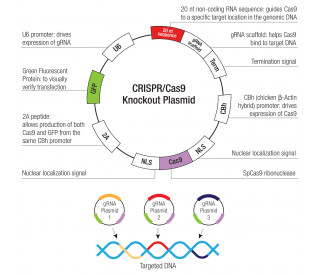
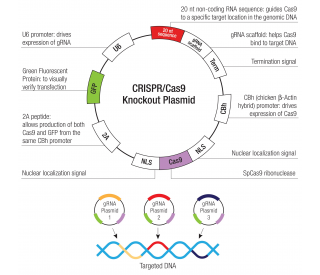
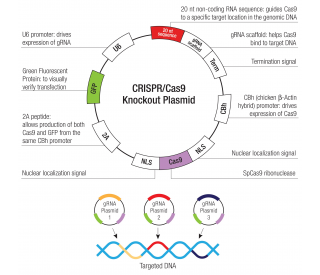
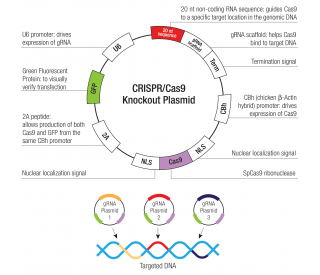
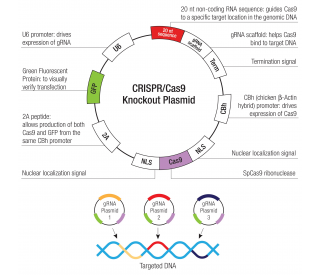
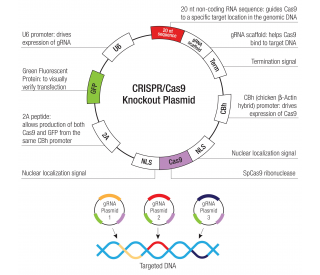



 粤公网安备44196802000105号
粤公网安备44196802000105号